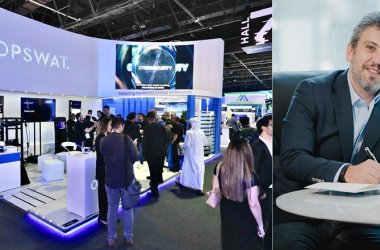Ashley Woodbridge, Field CTO ISG META at Lenovo, tells Anita Joseph how the company has been leveraging the power and potential of Generative AI to democratise it and make it more accessible to everyone.

Generative AI is currently the trend. Can you share why this is such good news for Lenovo, which has embraced generative AI solutions?
Indeed, Generative AI is receiving a lot of attention these days. What we aim to emphasise is that this technology is not just a buzzword; it’s a practical and tangible reality today. While Chat GPT often steals the limelight, our focus has been on addressing the specific needs of customers who value data privacy and security. Many organisations, when seeking AI solutions, don’t want their data to be used for training, and they want assurance that it complies with their country’s laws. Therefore, we’ve prioritised building platforms that enable large language models to operate securely and privately. Additionally, sustainability is a concern, and we’ve invested in technologies like water cooling to minimise environmental impact.
Along with the promise of generative AI come significant security risks. How does Lenovo ensure that technology and security go hand in hand without compromising infrastructure?
Security is a paramount concern. To address this, we offer our customers the ability to run these powerful capabilities in their own data centers, giving them control over security. Ease of management is a priority for us. Furthermore, we take responsibility for ensuring that our Generative AI models are free from bias and used ethically. Lenovo has established a responsible AI committee to scrutinise everything we do in this regard. Lastly, we control our manufacturing processes, which means our customers don’t need to worry about the underlying hardware and software platforms being compromised by potential hackers.
Turning to the future, are there any specific technologies, announcements, or breakthroughs that Lenovo plans to unveil at GITEX or shortly afterward?
While we may not have specific announcements for GITEX, I can share some recent advancements we’ve made in collaboration with partners. We’ve developed AI models that can detect diabetes by examining retinal images. Additionally, we’re using AI to enhance child safety by analysing medical records to identify children who might be at risk. These efforts align with our overarching goal of democratising AI. Over the past couple of years, AI has been somewhat exclusive to those with substantial resources. We want to change that. We want to make AI accessible to students and local research institutions while ensuring compliance with government regulations and maintaining security. Our focus is on getting AI into the hands of smart individuals and not restricting it to those with massive budgets or enormous financial backing.





